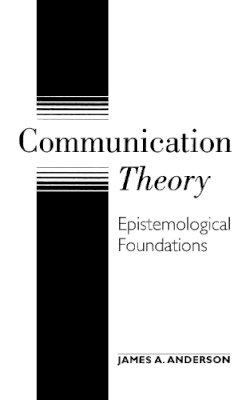
Communication Theory: Epistemological Foundations (The Guilford Communication Series)
James A. Anderson
This book provides a thorough analysis of the scientific, critical, and cultural questions at the foundation of theory-building in communication and other social sciences. Any claim to knowledge, the author explains, can be analyzed in terms of a series of characteristics: the object of its explanation, the explanatory form and evidentiary method employed, its characteristic explanations, the scope of its performance, and its consequences of value. From identifying basic epistemological questions to exploring the impact of the knowledge industry on society, the volume offers readers the analytical tools to understand, compare, and evaluate theories and their use both inside and outside the classroom. The book also includes a systematic analysis of communication's most influential theories and traces their genealogies across different content fields and disciplines.
Product Details
About James A. Anderson
Reviews for Communication Theory: Epistemological Foundations (The Guilford Communication Series)
Stanley Deetz, Ph.D., University of Colorado. President of the International Communication Association, 1996-97 This book (Anderson) treats us to a tightrope walk between communication theories and the communication practices of communication scholars. Instead of providing simple answers to the epistemological questions theories inevitably raise, it (he) draws numerous distinctions between communities of scholars that claim to have them, and thus shows us how communication scholarship is made in the process of communication of communication.
Klaus Krippendorff, Ph.D., Professor of Communication at the University of Pennsylvania Anderson's book stands alone; it's one of a kind. I know of no other single text that is as comprehensive in its treatment of communication theories. The range of the work is remarkable. It is not merely a comprehensive review of communication theories, it is the way Anderson grounds them in the philosophy of science that is the noteworthy contribution.
Leonard C. Hawes, Ph.D., University of Utah -
